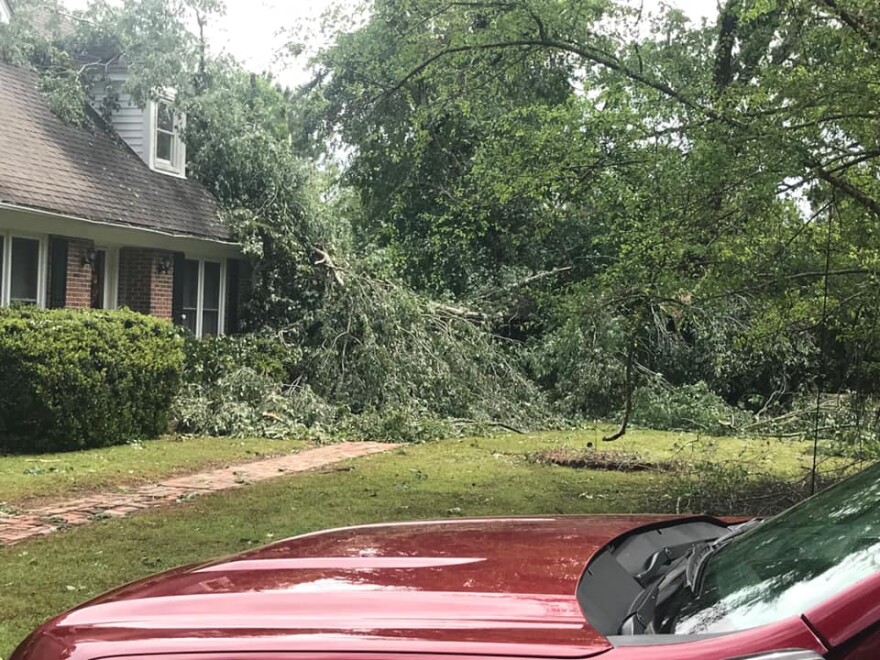It's being called the most significant severe weather outbreak in South Carolina in 12 years and already it's claimed nine lives.
"This is a very rare situation that I've only faced working in different parts of the country several times in my career," said Richard Okulski, the meterologist in charge for the National Weather Service in Columbia.
He says it could be days before his teams knows the severity of the storm's path with some tracks as long as 30 to 50 miles. But already they've found damage consistant with an EF3 tornado which means winds in excess of 140 miles per hour.
South Carolina began eyeing the system late Easter afternoon, as tornadoes pummeled places like Alabama and Mississippi. The first death reported here Monday was a 77-year-old security guard at the BorgWarner Plant in Seneca.

As the storm barreled east, it took lives in several South Carolina counties including Oconee, Hampton, Orangeburg and Colleton. The Colleton County Sheriff’s Office says deputies found one person dead in a home where a tree had fallen through.
Damage assessment crews will scour other communities whose toll may not yet be known, like Edisto Beach, Kiawah, Georgetown, Aiken, Dorchester, Horry and Berkeley Counties.
“It’s just hard because you have so many people quarantined,” said Ryan Nelson Goldwater.
Her parents, both disabled, live in Givhans in Dorchester County. They just happened to be awake when the storm ripped through. A large tree lies across their roof, but otherwise they’re alright.
“I’m just happy they’re alive.”

The South Carolina Emergency Management Division says in all 15 counties sustained significant damage. Power was knocked out to tens of thousands of customers while downed lines and debris made many roads impassable.
In the town of Nesses in Orangeburg County, officials say more than a dozen homes were destroyed.
Governor Henry McMaster spent the day with members of the National Guard assessing the widespread damage.
Meantime, the American Red Cross is still calculating the number of people it’s helping in the hardest hit areas. Spokesman Ben Williamson says the fight against the spread of the coronavirus is unfortunately changing the way it responds to this disaster.
“We would have opened a shelter,” he said. “But that’s not the best option now. “We’re working with community partners and local hotels to find shelter.”



